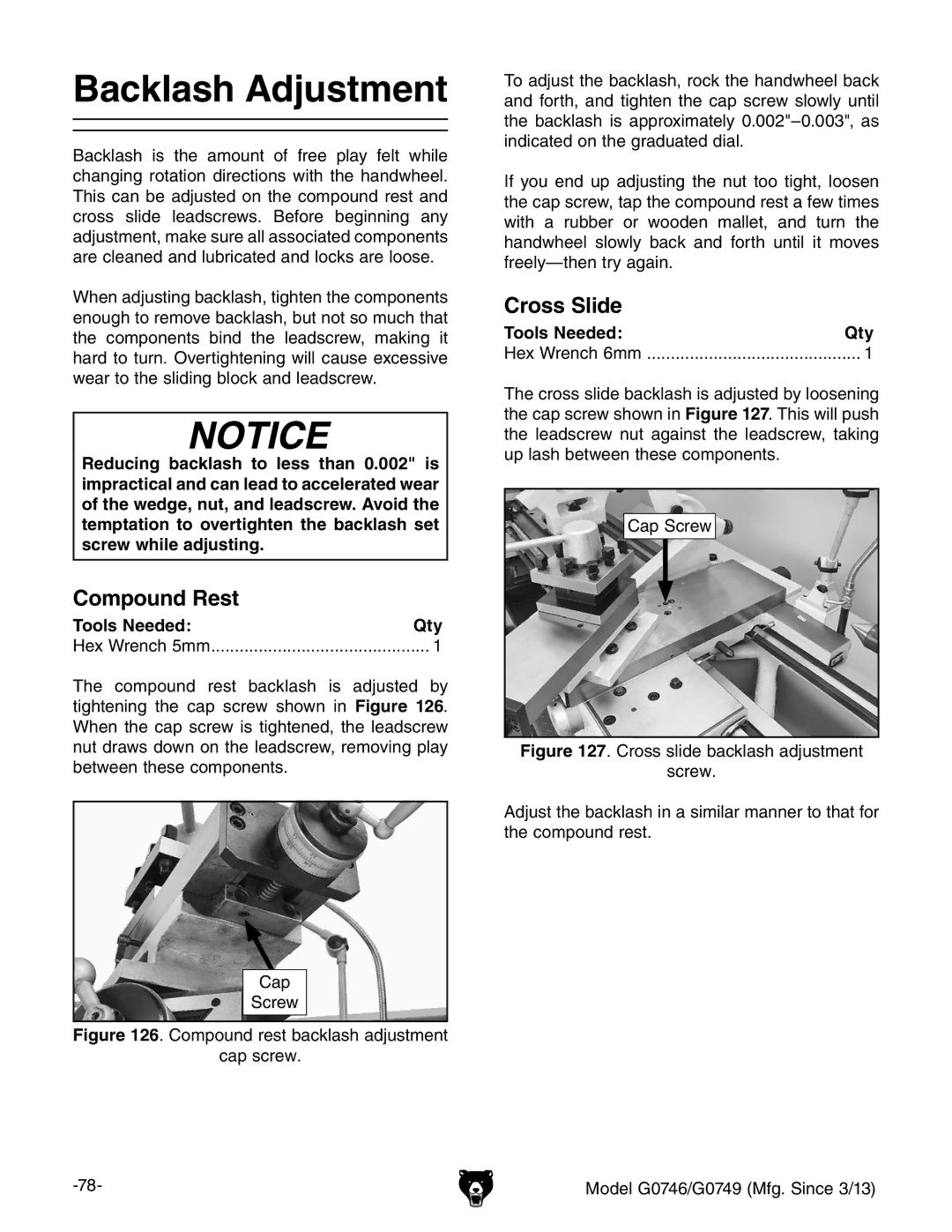
Backlash Adjustment
Backlash is the amount of free play felt while changing rotation directions with the handwheel. This can be adjusted on the compound rest and cross slide leadscrews. Before beginning any adjustment, make sure all associated components are cleaned and lubricated and locks are loose.
When adjusting backlash, tighten the components enough to remove backlash, but not so much that the components bind the leadscrew, making it hard to turn. Overtightening will cause excessive wear to the sliding block and leadscrew.
Reducing backlash to less than 0.002" is impractical and can lead to accelerated wear of the wedge, nut, and leadscrew. Avoid the temptation to overtighten the backlash set screw while adjusting.
Compound Rest |
|
Tools Needed: | Qty |
Hex Wrench 5mm | 1 |
The compound rest backlash is adjusted by tightening the cap screw shown in Figure 126. When the cap screw is tightened, the leadscrew nut draws down on the leadscrew, removing play between these components.
Cap
Screw
Figure 126. Compound rest backlash adjustment
cap screw.
To adjust the backlash, rock the handwheel back and forth, and tighten the cap screw slowly until the backlash is approximately 0.002"–0.003", as indicated on the graduated dial.
If you end up adjusting the nut too tight, loosen the cap screw, tap the compound rest a few times with a rubber or wooden mallet, and turn the handwheel slowly back and forth until it moves freely—then try again.
Cross Slide |
|
Tools Needed: | Qty |
Hex Wrench 6mm . | ............................................ 1 |
The cross slide backlash is adjusted by loosening the cap screw shown in Figure 127. This will push the leadscrew nut against the leadscrew, taking up lash between these components.
Cap Screw
Figure 127. Cross slide backlash adjustment
screw.
Adjust the backlash in a similar manner to that for the compound rest.
Model G0746/G0749 (Mfg. Since 3/13) |
